Bring on l’eau de l’algorithm
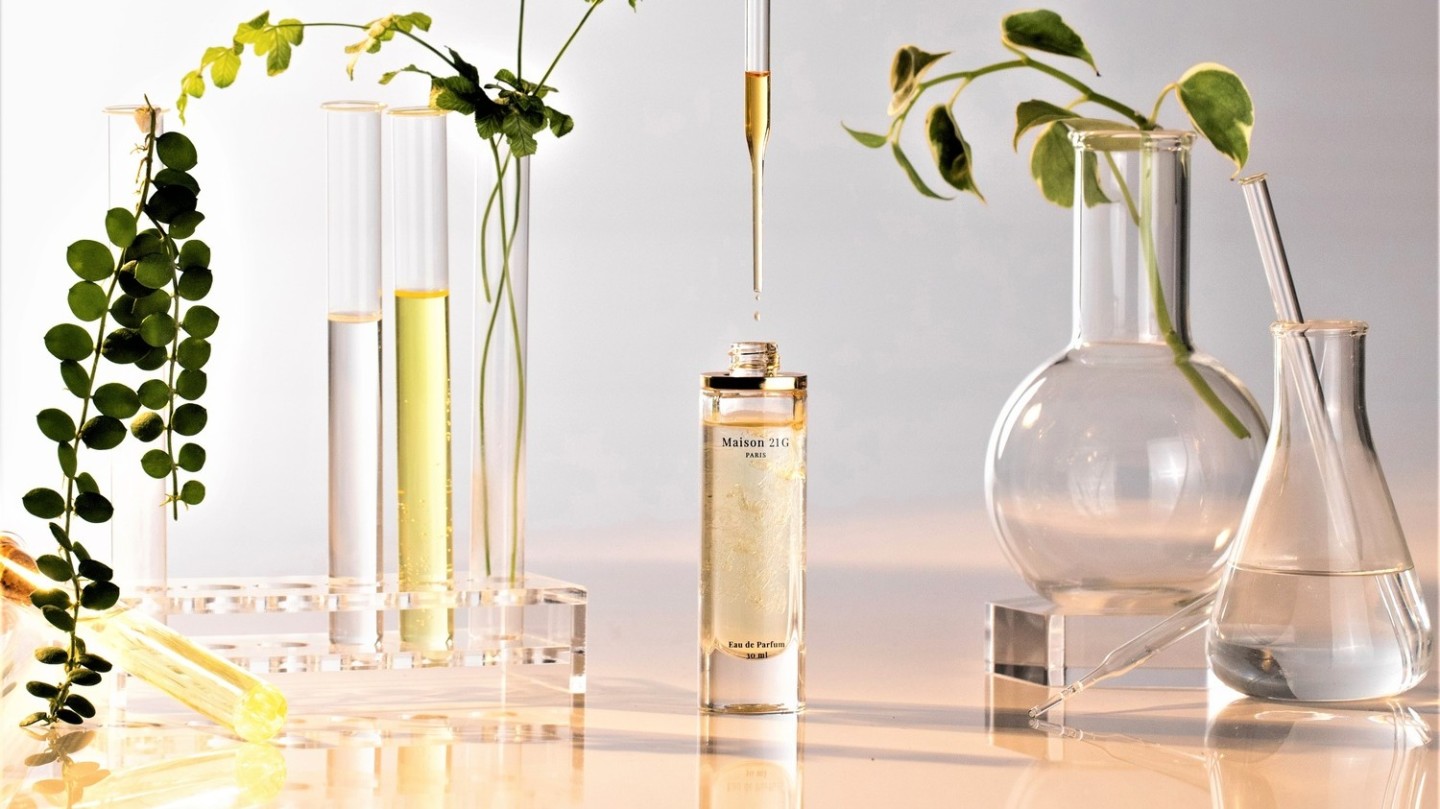
Roula Khalaf, Editor of the FT, selects her favourite stories in this weekly newsletter.
Anahita Mekanik, co-founder of AI platform EveryHuman, is showing me a large robot-like machine, whose 48 glass tubes churn to friendly R2D2 sounds. It is playfully Willy Wonka – only it’s not making chocolate, but a unique perfume, just for me.
I watch as the time-honoured craft of perfumery meets the future-facing technology of machine learning, data sets, algorithms and synthetic formulations. Can this model can make a mark on a $50.85bn global industry built on the allure of human expertise, secret processes, carefully selected (and increasingly hard to source) ingredients, fancy bottles and aspirational branding? “Inclusivity is the new luxury,” Mekanik says of the collaborative, AI-guided process.
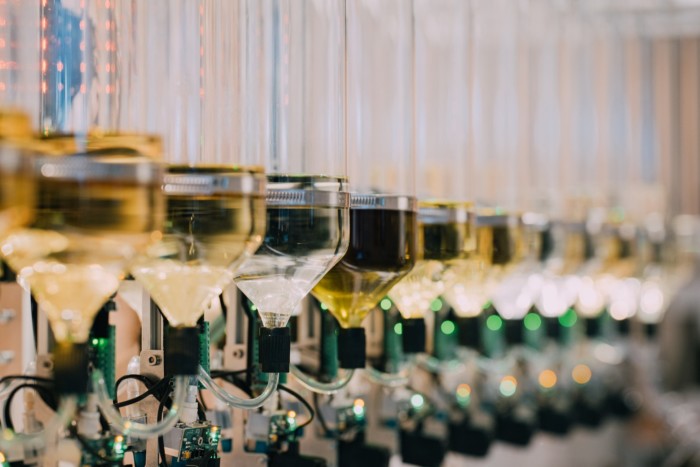
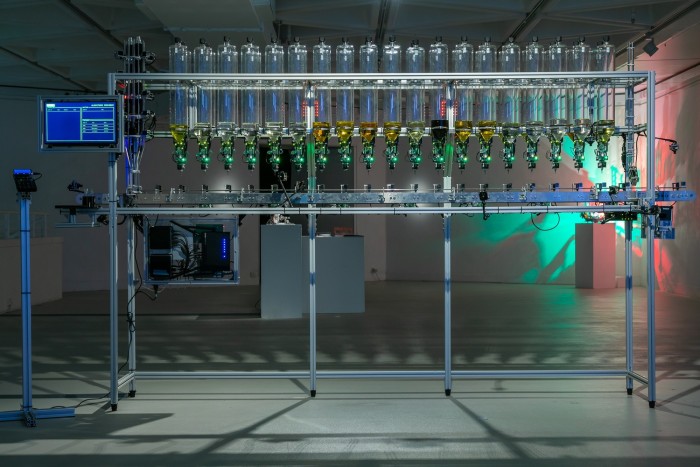
Algorithmic Perfumery, the bespoke AI perfume created by the platform EveryHuman, is the first of its kind. Launched in 2018 by scent designer Mekanik and artist-technologist Frederik Duerinck, it now has a permanent location in The Netherlands and several global pop-ups. Customers are invited to answer a questionnaire (online or in person) that feeds into a data system made up of 46 scent building blocks – a combination of natural and synthetic molecules. The data system uses reinforced machine learning (trial and error) to create three bespoke fragrances (priced from €45).
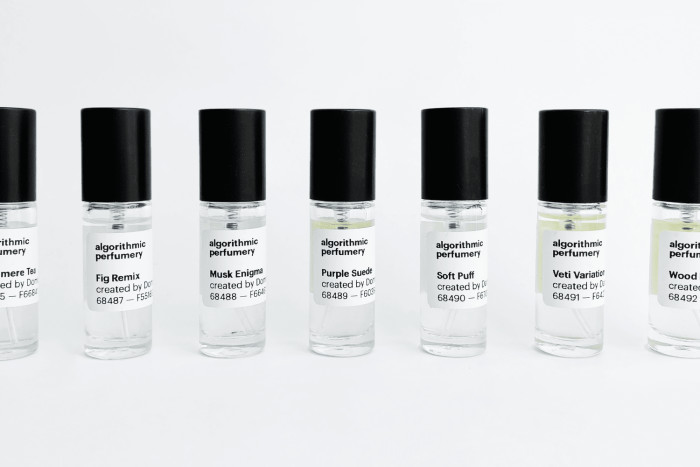
Its peers now include Stockholm-based NoOrdinaryScent, which gives customers the choice to create their AI-generated scent by uploading personal images or creating their own blends (€65). French perfumer Johanna Monange’s “personalised perfume house”, Maison 21G, uses AI to create fragrance products including home diffusers, candles and perfumes (priced from £30 to £155). Clients can create a scent based on a personality test, choose their favourite perfume as inspiration, or select ingredients. Maison 21G has also created bespoke scents for brands like Maserati and Fairmont Hotels.
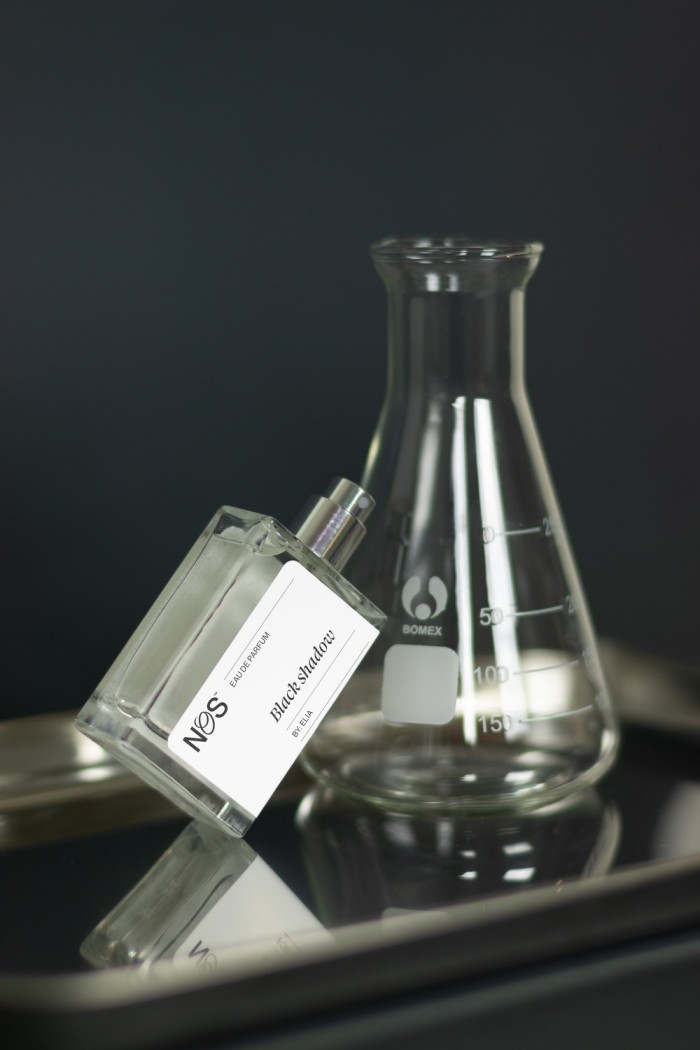
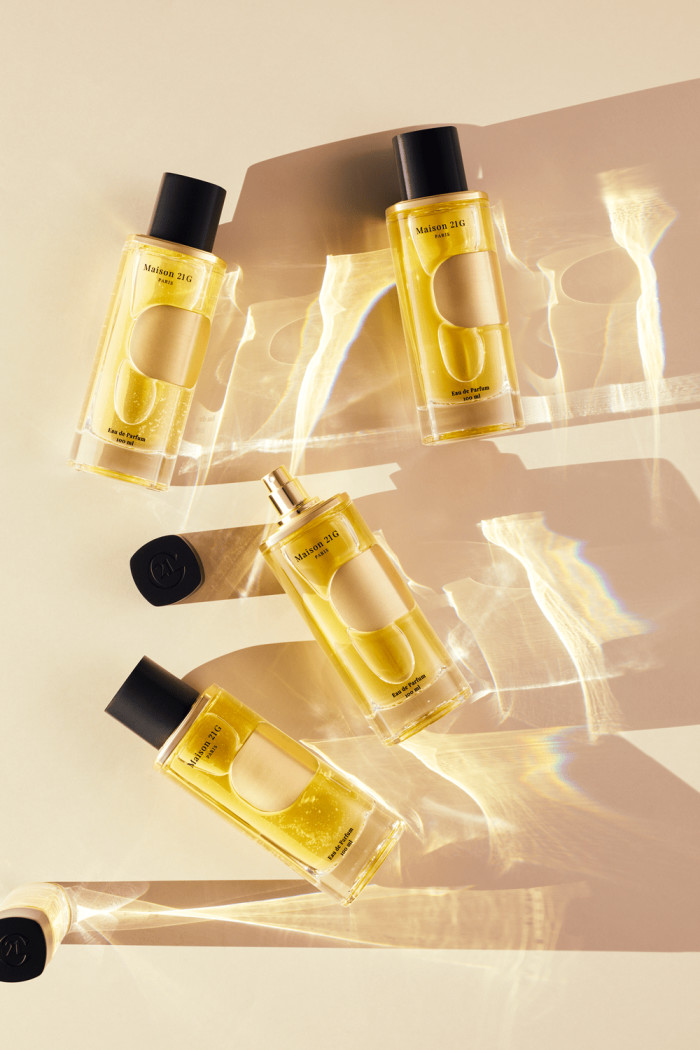
To create my Algorithmic Perfumery scents, I answer 25 sets of questions ranging from the personal to fragrance-specific, with a slider menu of possible answers. When asked, “How would you describe yourself”, I slide away from “self-centered” and nudge my cursor towards “caring”. Next I boldly click “leader” over “follower”. When asked, “If you could be somewhere else right now...”, I answer: “Somewhere in the mountains”.
EveryHuman spent two years working with psychologists, researchers and scent experts to develop its questionnaire. According to Duerinck, “it’s a delicate balance between wanting to create a reflective experience, while also collecting data.” Mekanik adds: “We recognise that it is a tall order to know why we love what we love when it comes to scent.” Algorithms work through psychological analysis, alongside social, cultural and sociological features. It also factors in implicit data like the length of time it takes to answer.
Historically, this guiding role has been reserved for a “nose”, a scent-specialist role that Lyn Harris of Perfumer H sees as sacred. “AI makes you skip all the steps – and emotion […] and the knowledge I hold cannot be replicated by a machine. If you want to work with AI, you have to have a perfumer working side by side.”
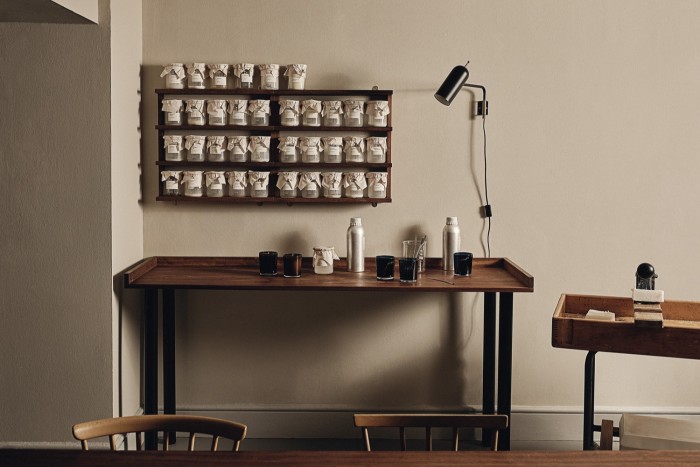
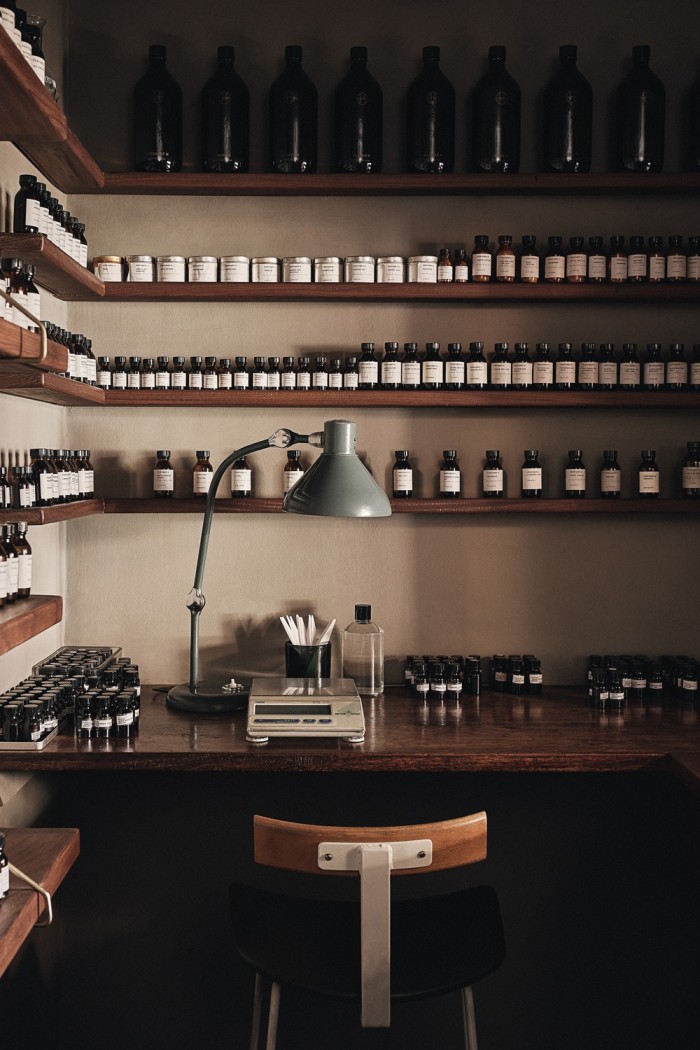
I submit my questionnaire, the data is crunched in real time and I watch the machine produce three different formulas. A week later, a chic black and white box with embossed lettering drops through my letterbox. Inside, there are three scents and a note saying I can go online and tweak my formula or request a session with a scent coach if I want to make changes. The scents feel complex, elusive and hard to grasp. But I’m not sure the fragrances are very me.
I look up the scents’ composition to get a sense of how the perfumes reflect my answers. My favourite of the three is composed of 40.4 per cent Sheer (described as woodsy and aligned to my love of mountains); 20.4 per cent Fougère 2.0 (a blend of lavender, geranium and oakmoss described as “invigorating and easy going”, and supposedly the me I want to be); 10.6 per cent Classic Chypre (a patchouli moss musk mix) and 9.6 per cent Metallic (described as a “magic light source that makes everything glow from within”, and which is intended to speak to my selection of “dreamer” over “realist”).
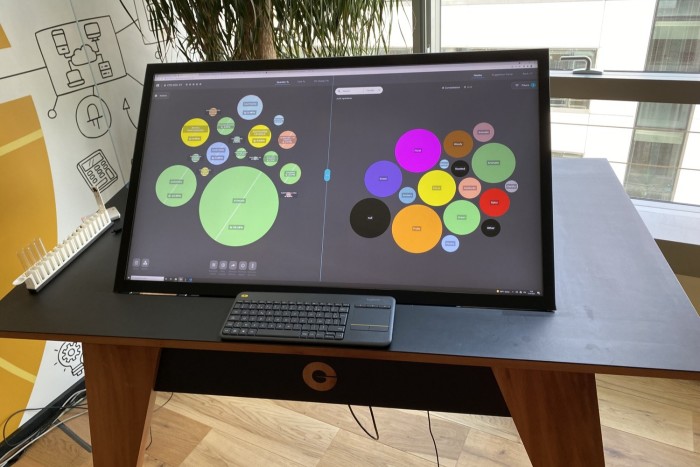
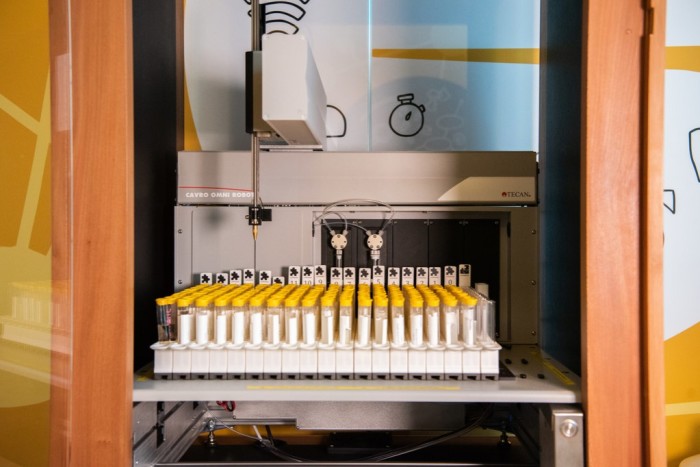
While I’m head over heels with the technology’s potential, I’m not keen on actually wearing the fragrance – unless I go back for a consultation with one of the real-life scent consultants.
Perfumery is also about custodianship, and maybe, for now, this is where AI will find its greatest value: “Making sure the scents we love remain consistent whatever gets thrown at them,” says fragrance specialist Lizzie Ostrom. “Price changes, hurricanes, new regulations, trade disputes, warehouse fires – AI can learn what gives a formulation its distinctiveness and suggest substitutions that help carry it on.”
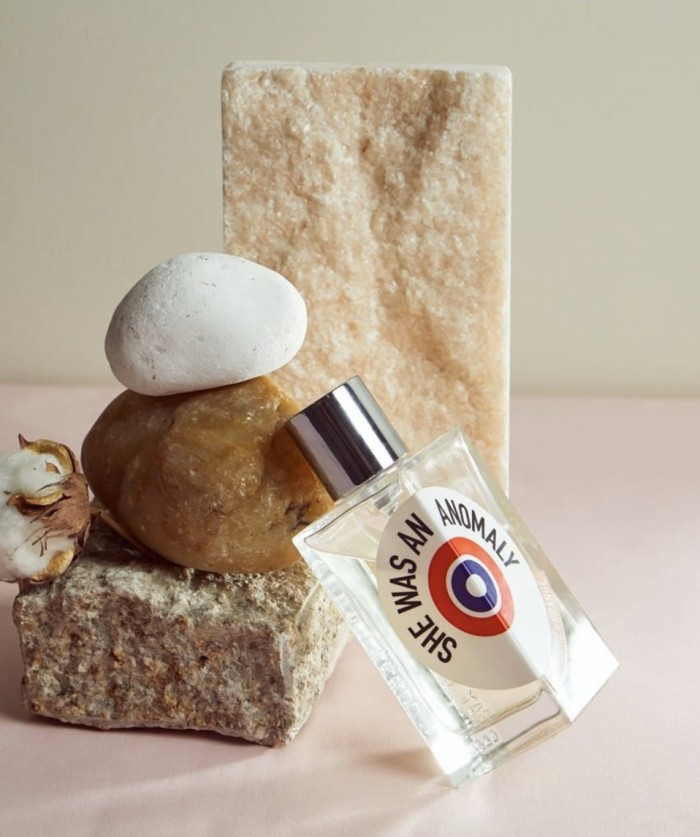
Indeed, companies have already begun leaning on AI to create straight-to-market scents. Egeo On Me and Egeo On You, released in 2019 by O Boticário, were created with the help of “Philyra”, an AI scent tool made by German flavour and fragrance manufacturer Symrise in conjunction with IBM Research. Philyra’s success was followed in 2020 by Carto, an AI tool launched by Swiss fragrance manufacturer Givaudan, which creates fragrances using a vast digital scent archive. One of the first Carto scents to be released was She Was an Anomaly (€140) by Paris perfumer Etat Libre d’Orange.
As is the nature of any AI tool – whether chatbots, facial recognition or map navigation – the more the system is used, the more sophisticated its outcomes. Given we’re only a few years into seeing the creative potential of AI in the world of scent, here’s hoping the future of AI-assisted scent smells as good as it sounds.
Comments